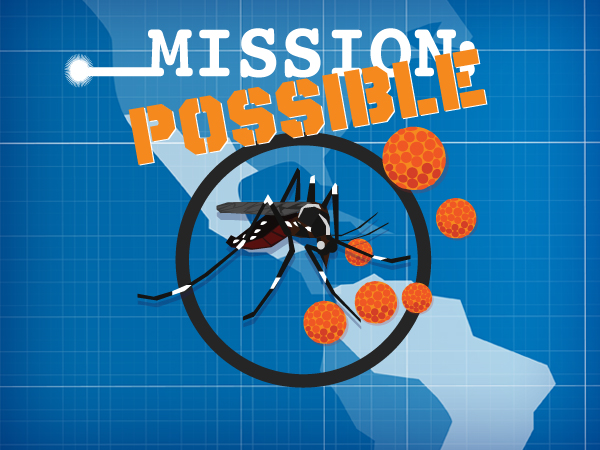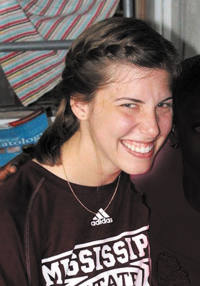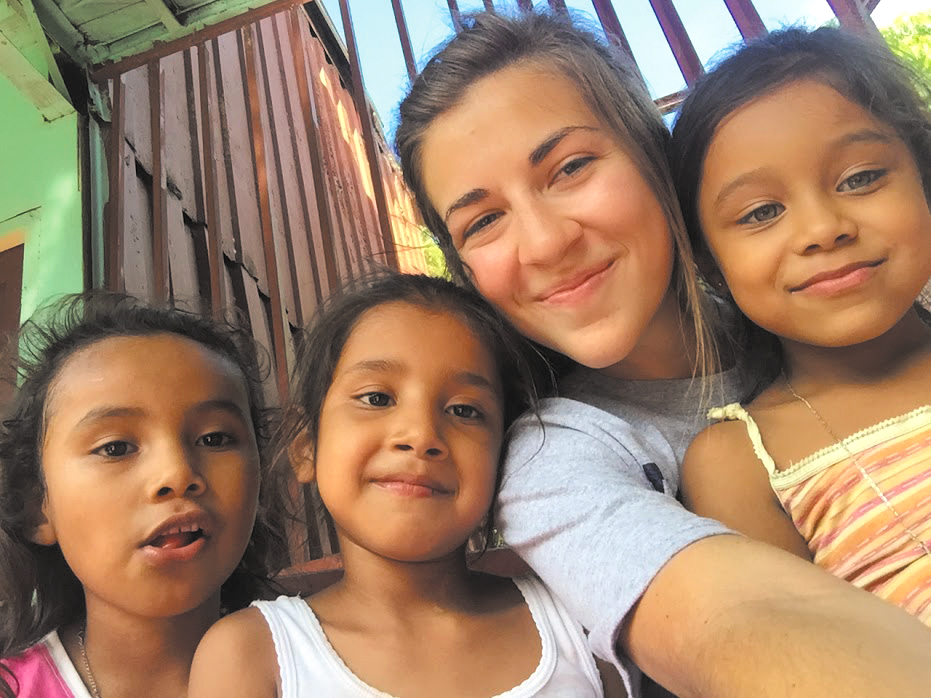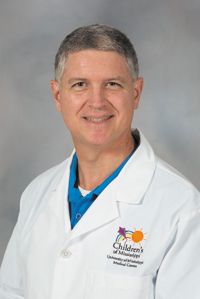Mission work is medicine for Zika fears

Published in News Stories on August 22, 2016
While world-class athletes and middle-class tourists alike are shunning countries ridden with the Zika virus, dozens of University of Mississippi Medical Center students, faculty and staff have not backed down.
In February, the World Health Organization declared the Zika virus' reach a global public-health emergency - yet nurses, dental and medical students, physicians, occupational therapists, pharmacists and others have continued to serve on medical missions to Haiti, Honduras, Peru, Nicaragua and other areas beset by outbreaks of the disease linked to paralysis and birth defects.
And many of them - including women of child-bearing age - plan to return, facing possible exposure to the mosquito-borne illness for which, so far, no cure has been found.
What they have found, instead, is a remedy for fear: the plight of the people they serve.
“Zika was definitely on people's minds,” said Logan Barlow, an RN and nurse-practitioner-in-training who traveled in May to Galette-Chambon, Haiti.

Barlow
“But what do you do?”
What do you do, she said, when every day in Haiti, you see untreated cases of scabies, dehydration, acid reflux, high blood pressure, parasitic worms and malnourished babies?
“If someone in Mississippi had blood pressure as high as some of these patients, they'd be in the ICU,” she said.
This was Barlow's second trip to Galette-Chambon. Her sister, Riley Barnes, who is entering the School of Nursing this semester, went as well.
The mission team treated 500-600 patients in one week. Organized by Ridgeland-based But God Ministries and sponsored by Broadmoor Baptist Church in Jackson, the 24-person unit included Dr. Michael McMullan, professor of medicine and director of the adult congenital heart program.
Barlow's husband, Beck, who does construction work, also traveled with her. They met people who walked all day from other villages to see them.
One of the patients arrived wearing a shirt covered with drainage and insects. That's how much her breast cancer had grown.
“We did what we could,” Barlow said. “We taught her to care for her wounds and we sent her to the hospital. She was probably in her forties. She had children. Her name was Jesula.”

Iupe
For Maggie Iupe, a second-year occupational therapy student, the face of Haiti was an 18-month-old boy named Jacki; he was so under-nourished he could barely crawl.
She met him on that same mission to Galette-Chambon, working in a missionary-run clinic with a group of OT students from UMMC led by Penny Rogers, assistant professor of occupational therapy.
“We had to teach Jacki to crawl,” Iupe said. “By the end of the week we were able to get him to start walking - while holding our fingers.
”It was amazing.”
No one from the team contracted Zika, but Iupe heard of a couple of women from other missions who did.
“I get nervous about stuff like that,” she said, “but we brought tons of bug spray with DEET."

Duckworth
Dr. Savannah Duckworth, a third-year internal medicine resident, has also been to Haiti, as well as Honduras. But this year, she was part of the team participating in a UMMC Ambulatory Medicine in Peru Rotation.
Supervised by course director Dr. Svenja J. Albrecht, assistant professor of medicine and infectious disease specialist, the February mission provided clinical care in communities along two Amazon River tributaries in the Loreto province.
“I don't remember having any hesitation about going, or any from the other women,” Duckworth said. “But I did use so much DEET that all my toenail polish came off.”
Duckworth knows what a mosquito bite can do to the human body. Near the end of a mission trip to Leogane, Haiti two years ago, her muscles and bones began to hurt so much she wanted to curl up into a ball.
She had caught chikungunya, a disease transmitted by the same mosquito that carries dengue fever, yellow fever and Zika.
“After Haiti, I was concerned about going on mission trips,” Duckworth said, “but I have been to Honduras and Peru since then. In spite of how sick I was, it made me all the more willing to serve.
“I was sick another week or so after I returned from Haiti, but I had my American comforts - air conditioning, TV, pizza delivery, Tylenol. The people in Haiti did not have that.”

Meagan Henry bonds with the children of some patients in Nicaragua.
About 1,000 miles from Haiti, third-year medical student Meagan Henry entered another “Zika zone” this summer in Jinotega, Nicaragua.
“I will say I won't take for granted the ability to buy 100 percent DEET in the U.S. anymore,” she said.
Henry had been to Nicaragua before, but this was her first visit on a medical mission organized by Global Health Interest Group, a student interest organization whose UMMC faculty advisor is Dr. Jericho Bell, assistant professor of medicine.
“We didn't see any cases of Zika directly, but when we visited a rural hospital, the supervisor said they had some cases that resulted in newborn defects,” said Henry, one of a half-dozen students who went to Nicaragua with Dr. Alan Penman, professor of medicine and an epidemiologist/biostatistician. “But they were much more overridden with dengue.”
While she had few concerns about contracting Zika, Henry has fretted over the long-term value of a short-term medical mission.
“It definitely has been something that I, and I'm sure many others, struggle with - knowing that, although you may meet an immediate need, there are so many others that weren't even touched during your time there,” she said.
But their leader, Penman, focused on sustainability, she said. They taught patients basic first aid, for instance, and how to eliminate potential mosquito breeding grounds.
Most enjoyable of all, Henry said, was getting to care for the children whose parents attended the seminars.
“So my favorite 'patients' were not really the patients, just extremely joyful kids who were satisfied teaching me colors and numbers in Spanish in the heat.
“At the very least, you can give them your time, and sometimes that can help you both, somehow.”

Reed
A month or so earlier, well across the border with Nicaragua, Dr. Mark Reed made his second mission trip to Guaimaca, Honduras. A professor of otolaryngology and chief of the Division of Pediatric Otolaryngology, Reed was one of four surgeons on a 40-plus member team who performed 68 surgeries the week before Memorial Day.
The mission is located in the mountains, where mosquitoes are few and Zika is not a problem, he said.
“However, a young woman did come in from a village hours away, brought by her dad. She was pregnant and had been bleeding for five days; it was a spontaneous abortion.
“She definitely had the Zika virus.”
It was his first brush with the disease, which is more risky for women, he said.
“I'm 53. If I get it, it's no big deal. I may get an eye infection or rash.
“One nurse did choose not to go on the trip, because she was recently married and wanted to start a family. For her, that was probably a wise decision.”
What affected him more than Zika was the condition of the people he saw.
“They don't go to surgeons, because they have no insurance,” he said. “The average wage is $5 a day. They had no access to water. We had to deliver water every single day just to keep people alive.
“These are the kinds of things we don't know about in the United States. And it's humbling to witness them.”


